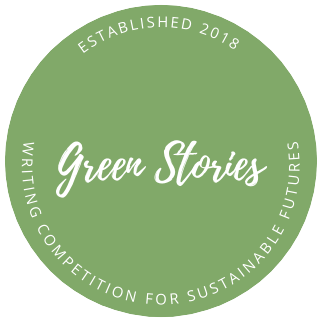Why we ask for a Positive View
There are many books/films that take a post-apocalyptic dystopian view of life after climate change. The trouble is that these can create fear and anxiety, leading to avoidance and denial. We’d like you to give humanity a little more credit and think how some of the changes might be dealt with in more positive ways.
The benefits of presenting a rosier picture is not just that it reduces anxiety, but by presenting more positive visions you can actually make them happen. Stories are incredibly powerful – by showing how people could behave, you also affect how they do behave. Characters in stories act effectively as role models for our own behaviour, and having positive role models that are still realistic can be incredibly empowering and inspiring.
Life after climate change
Housing: It is likely that sea levels will rise, this will put pressure on land and living space. It is easy to see how this can cause problems but with thoughtful planning there could be upsides to this. Loneliness is a growing problem in society, and not just among the elderly. With shortages of land, it would no longer make sense for separate households. Instead more communal arrangements with separate bedrooms but shared kitchens and living rooms would make more sense. Many of us will live this way at some point in our lives e.g. as students in halls of residents or in care homes and it can be great to have that social element. Childcare as well can be much easier in communities that share living spaces such as rural African communities. In contrast, childcare can be very lonely and difficult for a small nuclear family. So your story can showcase some of the more positive elements of life after climate change.
Lack of fresh water: There is also likely to be limited fresh water, so long hot showers and washing hair daily would no longer be an option. But actually using dry shampoo is so much easier and more convenient, taking just a few minutes and making hair easier to style. It is also increasingly being realised that chemicals in shampoos and washing products can be bad for our skin, hair and health. Most will find their hair and skin condition will improve with less washing. So stories could show a morning routine that involves simply wiping smelly places with a damp towel and using dry shampoo – quick and easy.
Growing vegetables: We would also grow our food differently using hydroponic techniques that require little water. This system has advantages beyond saving water: you can grow plants anywhere, there is no need for pesticides and use 20% less space for growing.
Climate change mitigation
There are lots of solutions outlines on our green energy, green transport and sustainable food pages, but how about green buildings – here is an article about using algae as a building material – it absorbs CO2 and provides insulation.
Great resources to keep up to date are the Sky Daily Climate Show – 15 minutes every day. Or BBC’s ’39 ways to save the planet.
Any more ideas?
Add them to your story or send to us to add to our website at greenstories@soton.ac.uk or share via our social media channels:
www.facebook.com/greenstoriessoton
Twitter: @GreenstoriesUK
Instagram: greenstoriessoton

